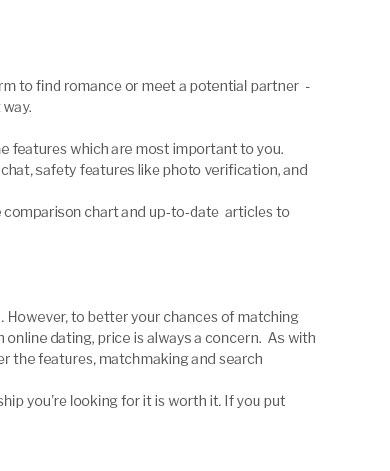wife affair texts: signs, context, and choicesUnderstanding the phrase and the bigger pictureThe phrase “wife affair texts” often surfaces when messages seem secretive, intimate, or inconsistent with established boundaries. Yet messages are only one fragment of a complex relationship story. Texts are clues, not verdicts. Approach the situation with curiosity, clarity, and compassion. Your goal is to understand, protect your well-being, and make informed choices. Common signs that raise concernContent and pattern clues- Sudden use of endearments or coded nicknames that never appeared before.
- Conversations moved to new apps right after arguments or boundary talks.
- Regular deletion of threads, empty chat histories, or disappearing-message modes.
- Phone held face-down, screen brightness lowered when you’re near.
- New passcodes, hidden notifications, or “Do Not Disturb” during shared moments.
- Unexplained emoji-heavy chats with minimal real-world context.
Behavioral context- Increased irritability when simple questions are asked about contacts.
- Guarded posture with the phone, including taking it everywhere.
- Deflection, joking, or blaming when you request clarity.
Suspicion can grow quickly when context is missing. Benign reasons messages can look suspicious- Planning a surprise or private support for a friend’s sensitive issue.
- Exaggerated tone in group chats intended as playful, not romantic.
- Professional boundaries requiring confidentiality or client privacy.
- Using alternative apps for hobbies, gaming, or creative collaborations.
Ask for context before concluding intent. Practical steps to respond with carePrepare to talk- Write down observations and feelings; keep to specific examples.
- Choose a calm setting that supports honest conversation.
- Clarify your core needs: honesty, safety, respect, and repair.
Have the conversation- Use “I” statements: “I feel uneasy when messages are hidden.”
- Ask open questions: “What does this contact mean to you?”
- Name boundaries, not ultimatums: “I need shared clarity about close friendships.”
- Listen actively, summarize what you heard, and check for understanding.
Rebuild trust or decide on next steps- Co-create boundaries for private vs. shared digital spaces.
- Consider couples counseling or individual therapy for guidance.
- Agree on transparency practices that feel respectful to both partners.
- Define consequences and support structures if boundaries are crossed.
Technology, privacy, and ethicsValue truth and consent. Gathering information without consent can harm trust and may be unlawful in some places. - Do not hack accounts, clone devices, or impersonate anyone.
- Do use secure passwords, personal device protection, and clear agreements.
- Document your feelings and observations in a private journal rather than snooping.
- Seek legal or professional advice if safety or shared assets are at risk.
Online platforms, searches, and mixed signalsPeople sometimes stumble on suggestive site names in histories or messages and assume the worst. Context matters. A mention of baton rouge hookup could reflect curiosity, spam, or a direct pursuit; only a candid conversation reveals intent. Likewise, references to local lists such as hookup sites dayton ohio can be ambiguous without explanation. Evidence without dialogue rarely resolves anything. What healthy boundaries can look like- Mutual agreement on what counts as flirting, secrecy, or emotional intimacy outside the relationship.
- Reasonable phone privacy with agreed exceptions for transparency.
- Clear rules for colleagues, friends, and exes.
- Repair routines: apology, accountability, and consistent follow-through.
Helpful words when you’re unsure what to say- “I found messages that feel intimate. I want to understand what they mean to you and to us.”
- “My need is honesty and emotional safety. How can we create that together?”
- “Let’s define boundaries we both endorse and write them down.”
Your well-being matters. If you feel unsafe, reach out to trusted help immediately. FAQHow do I tell the difference between friendly banter and affair-level intimacy?Look for combinations of secrecy, repeated emotional escalation, romantic subtext, and boundary dismissals. One flirty line in a noisy group chat is different from sustained private exchanges with hidden notifications and defensiveness when asked for context. Should I read more messages to be sure?More snooping rarely creates peace. It can violate trust and cause legal or ethical problems. Prioritize a direct, respectful conversation and request voluntary transparency instead of covert monitoring. What if my partner says the texts mean nothing, but my gut says otherwise?Name your specific concerns and boundaries and ask for behavior-based commitments. Propose counseling to gain a neutral perspective. If words and actions conflict, base decisions on patterns you can observe and the boundaries you have clearly set. Is emotional texting still considered cheating?Definitions vary by couple. Many consider secret emotional intimacy, romantic tone, or prioritizing another person’s emotional needs over a partner’s as boundary violations. Agree together on your definition and document it to avoid confusion. How can we rebuild trust after problematic messages?Combine a sincere apology, full disclosure by mutual agreement, consistent behavior change, and co-created boundaries. Add scheduled check-ins, therapy support, and specific metrics for progress such as responsiveness, openness, and accountability. When should I consider ending the relationship?If there is repeated dishonesty, contempt, refusal to set or respect boundaries, or any form of abuse, separation can protect your well-being. Seek professional, legal, or safety-planning support as needed.
Key takeaways- Seek context, then decide.
- Protect dignity and safety.
- Build clear, mutual boundaries.

|




















